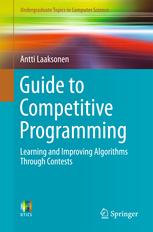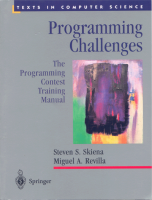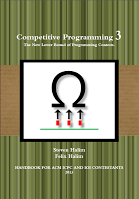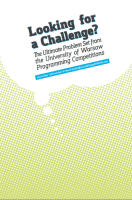Datatähti Open 2021 is an open online contest based on the final round of the Finnish Olympiad in Informatics (Datatähti) 2021.
The duration of the contest is 4 hours, and you can start the contest at any time between 29 January 2021, 16:00 (UTC) and 31 January 2021, 16:00 (UTC).
Contest link: https://cses.fi/359/list/
The contest consists of six problems (from easy to difficult), there will be subtasks and full feedback, and the scoreboard will be published after the contest. You can discuss the problems here after the contest.














